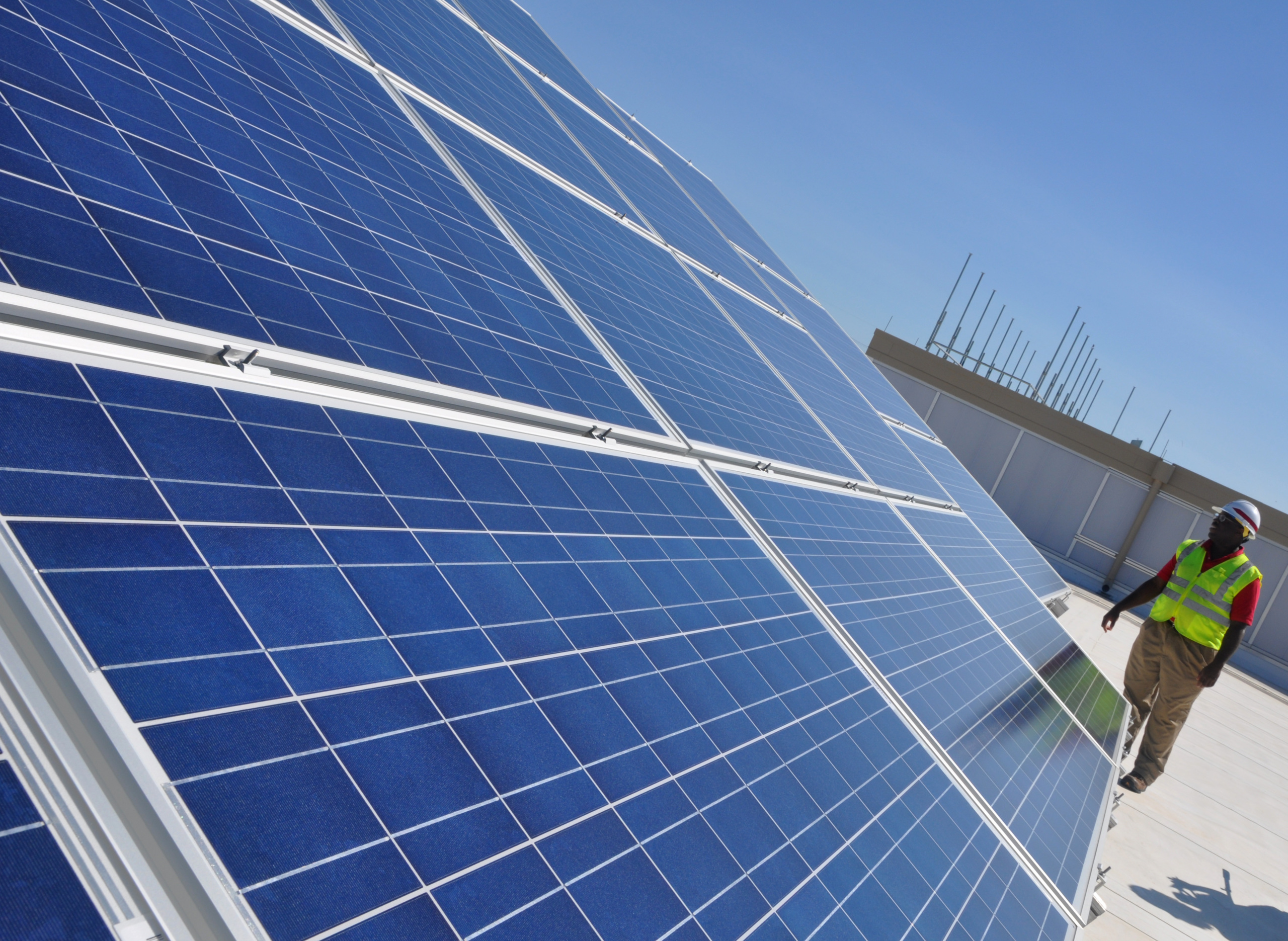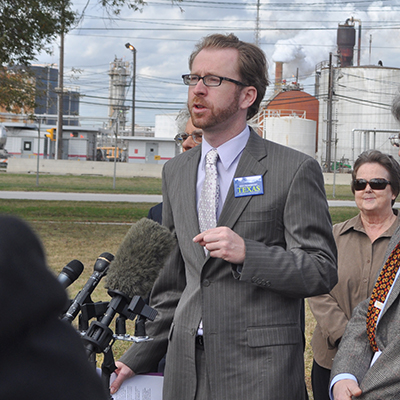
Agenda for Austin
Recommendations for clean air, water and energy
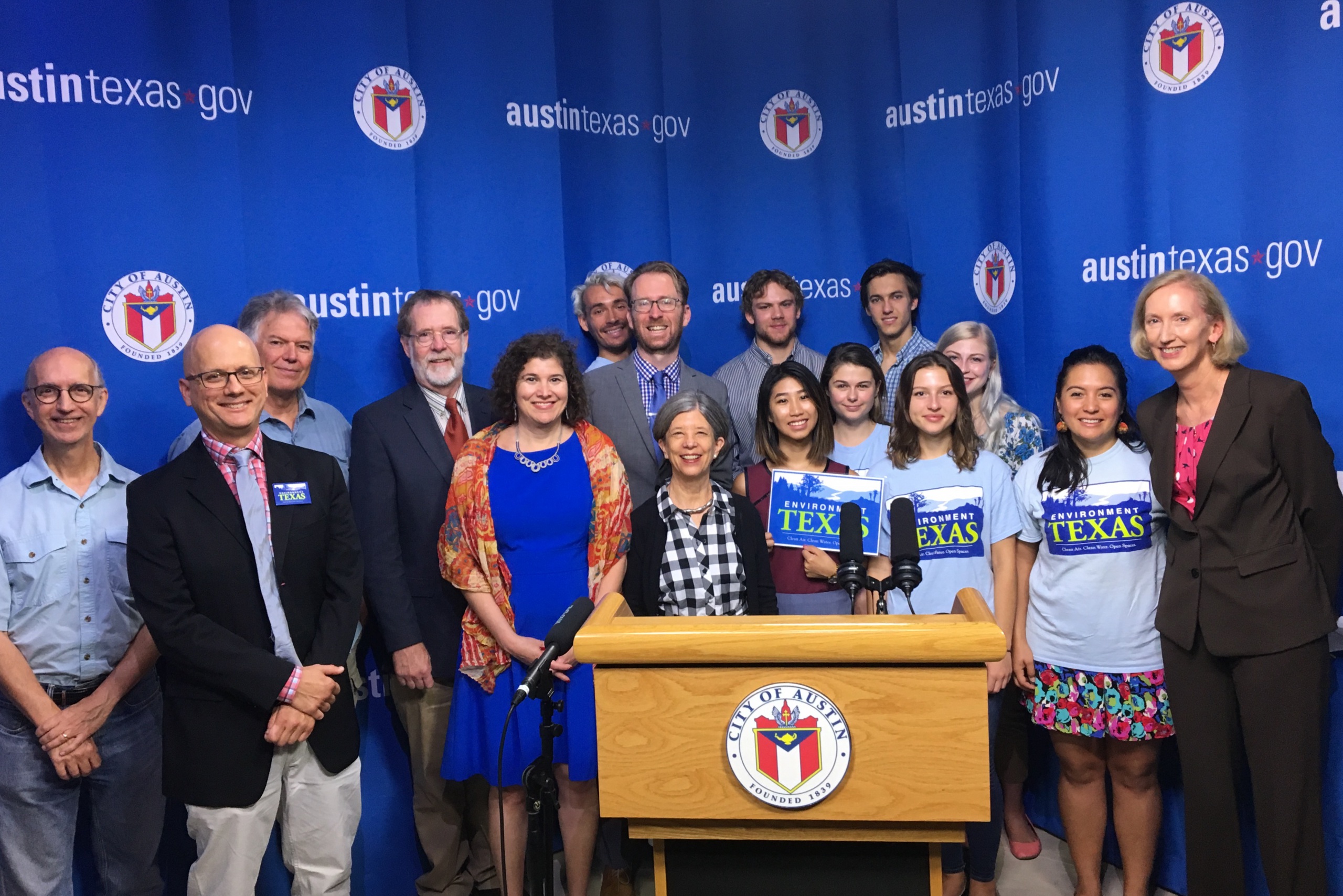
Austin has long been a leader in environmental protection. For example, according to our research, Austin Energy ranks 1st in the United States for solar energy capacity among municipal utilities. But it’s clear that we still have a lot of work to do. Every day, we see more heartbreaking evidence of the damage being done to our planet: climate change, plastic pollution, wildlife disappearing forever. But we also see the solutions all around us, practically begging us to adopt them: solar and wind power, electric cars and buses, a more walkable and “bikeable” city, reusing and repairing stuff instead of throwing it away, and on and on. We’ve prepared the following recommendations for the City of Austin to take to protect our environment in 2021.
Clean Air
In 2018, Austin experienced 124 days of degraded air quality and Travis County is near nonattainment with the Clean Air Act. Breathing polluted air increases the risk of premature death and can also trigger asthma attacks and other adverse health impacts. Climate change will worsen air pollution as rising temperatures speed up the formation of ozone.
We urge the City to:
- work to stop the expansion of I-35
- adopt the 2021 International Energy Conservation Code, including amendments to ensure homes and business are ready for solar, electric vehicles, storage, and all-electric appliances.
- expedite the permitting process for electric vehicle charging infrastructure, including by providing an online method to apply for an EV charging station permit and establishing expedited timelines for EV permit application review
- require that all commercial or multifamily parking lots have at least 3% of parking spaces dedicated to EV charging and offer free or discounted parking rates for electric vehicles in public parking
- protect children’s health by creating funds to install air filters in daycares and schools near highways
Clean Energy
Texas is home to an abundance of clean energy options — the sun’s power, the mighty winds of west and coastal Texas, the earth’s heat, and even the energy leaking from drafty windows in our homes and businesses. Renewable energy already supplies about 41% of our Austin Energy’s electricity, but in order to help avoid the worst impacts of global warming, we must achieve 100% renewables. By using energy more efficiently and tapping our vast renewable resources, we can move to energy that doesn’t pollute, doesn’t contribute to climate change, and never runs out. Environment Texas urges the City to:
- work to close the Fayette coal burning power plant
- Adopt the National Renewable Energy Laboratory’s SolarAPP to streamline the permitting process for residential solar
Clean Water
Of 76 test sites within the city limits, 46 exceeded safe bacteria levels at least once in 2017 including Waller Creek, Walnut Creek, West Bouldin Creek, East Bouldin Creek, and Blunn Creek. While the city is a leader in water conservation and use of nature-based infrastructure, our 2020 report Texas Stormwater Scorecard gave the city a grade of 69% for its efforts to fight stormwater pollution. In addition, carcinogenic PFAS “forever chemicals” and lead in drinking water pose risks to public health. Environment Texas recommends the City:
- Reform the Land Development Code to promote compact connected development and protect water quality with new green infrastructure requirements on development
- Ban the use of toxic AFFF firefighting foam
- Work to get lead out of daycare drinking water
Wildlife Over Waste
Every day, people throw away tons of single-use cups, containers and other plastic “stuff.” Among the worst forms of plastic pollution is polystyrene foam (the stuff most of us call Styrofoam), which never fully degrades. Nothing we use for a few minutes should be allowed to pollute our oceans and rivers and threaten wildlife for centuries. While the Legislature preempts cities from bans on private property, cities can still stop the use of single use plastics on their own property. Environment Texas recommends the City:
- Ban single use plastics on city property, including the airport, and require plastic straws be provided only on request
- Adopt an ordinance requiring businesses only offer single use plastic straws upon request
Topics
Authors
Luke Metzger
Executive Director, Environment Texas
As the executive director of Environment Texas, Luke is a leading voice in the state for clean air and water, parks and wildlife, and a livable climate. Luke recently led the successful campaign to get the Texas Legislature and voters to invest $1 billion to buy land for new state parks. He also helped win permanent protection for the Christmas Mountains of Big Bend; helped compel Exxon, Shell and Chevron Phillips to cut air pollution at four Texas refineries and chemical plants; and got the Austin and Houston school districts to install filters on water fountains to protect children from lead in drinking water. The San Antonio Current has called Luke "long one of the most energetic and dedicated defenders of environmental issues in the state." He has been named one of the "Top Lobbyists for Causes" by Capitol Inside, received the President's Award from the Texas Recreation and Parks Society for his work to protect Texas parks. He is a board member of the Clean Air Force of Central Texas and an advisory board member of the Texas Tech University Masters of Public Administration program. Luke, his wife, son and daughters are working to visit every state park in Texas.
Find Out More
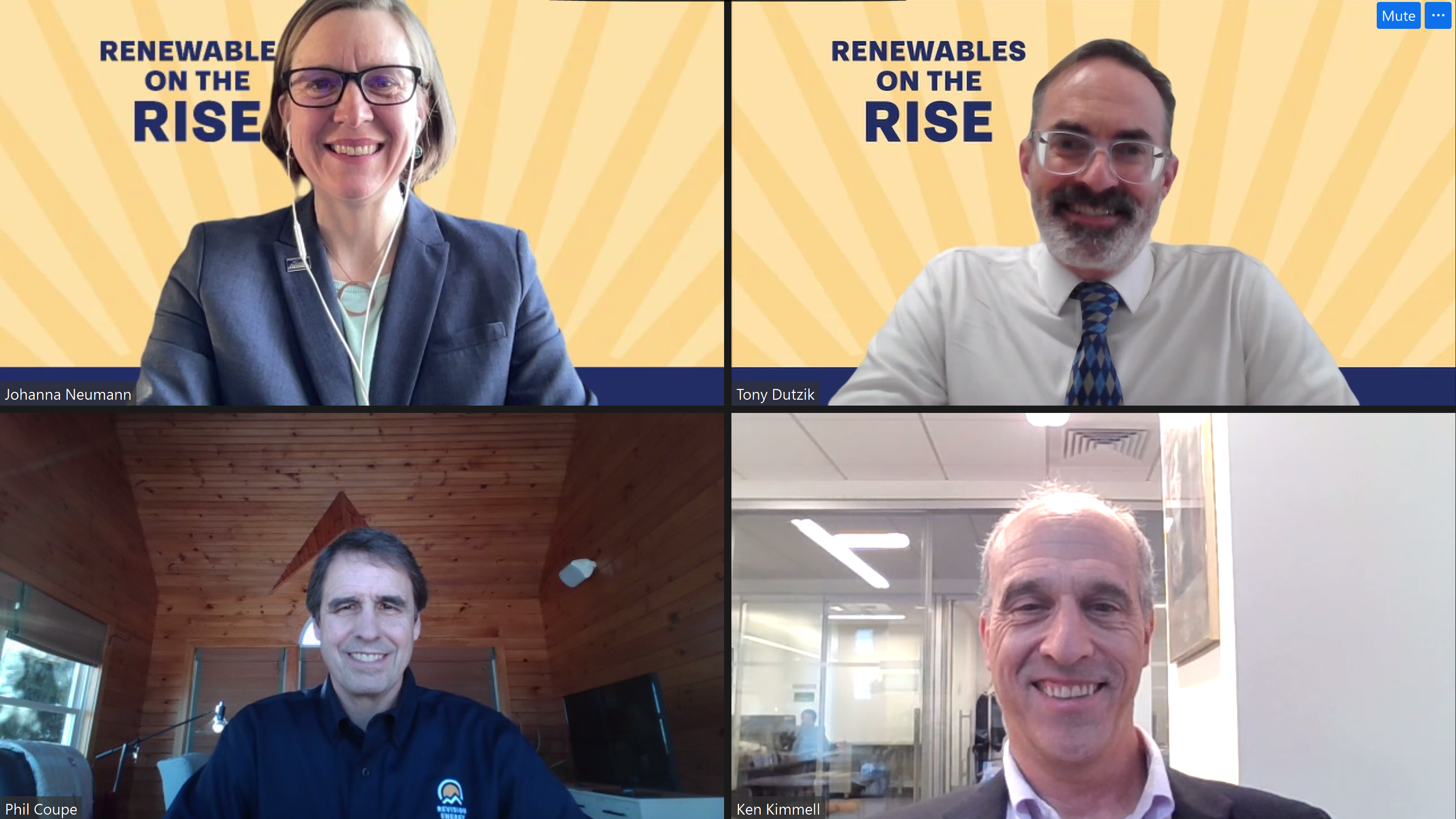
Key takeaways from Renewables on the Rise: Success Stories
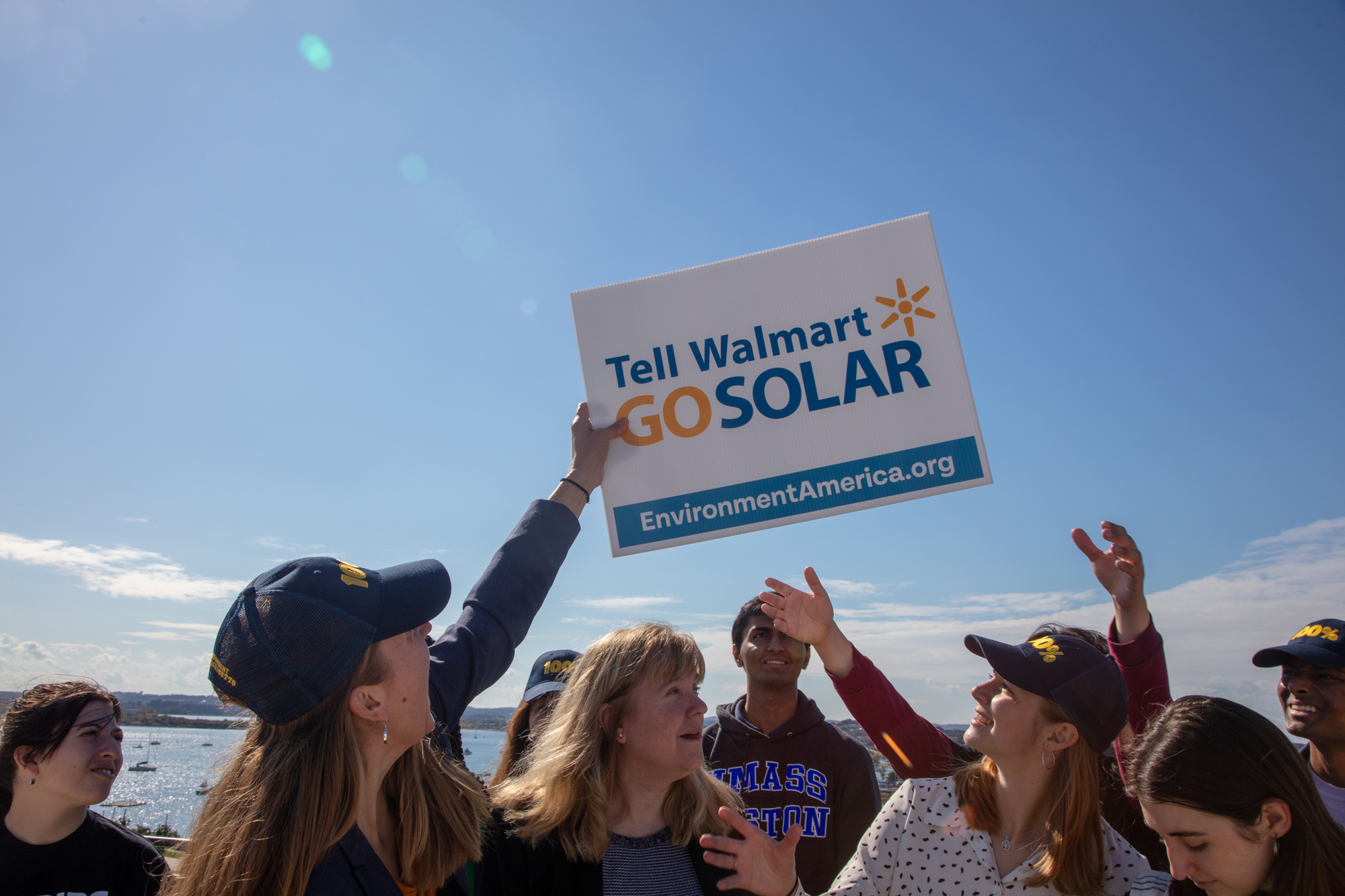
Which 10 American retailers can lead the way on rooftop solar?
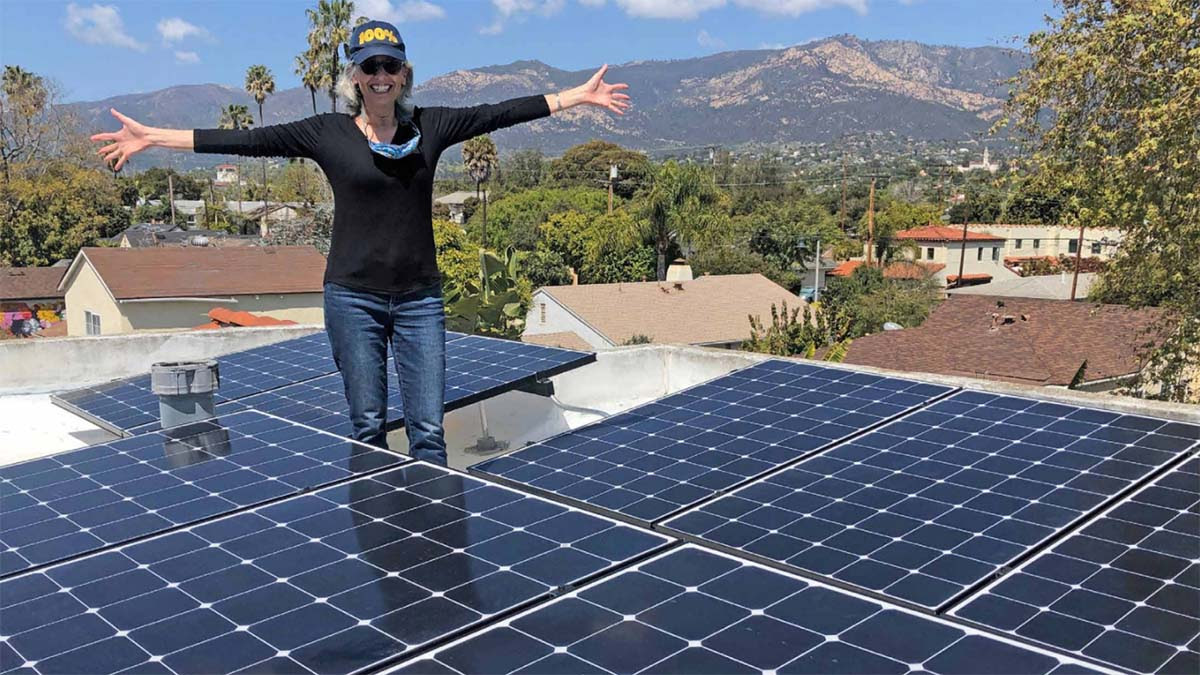
More rooftop solar, less red tape
